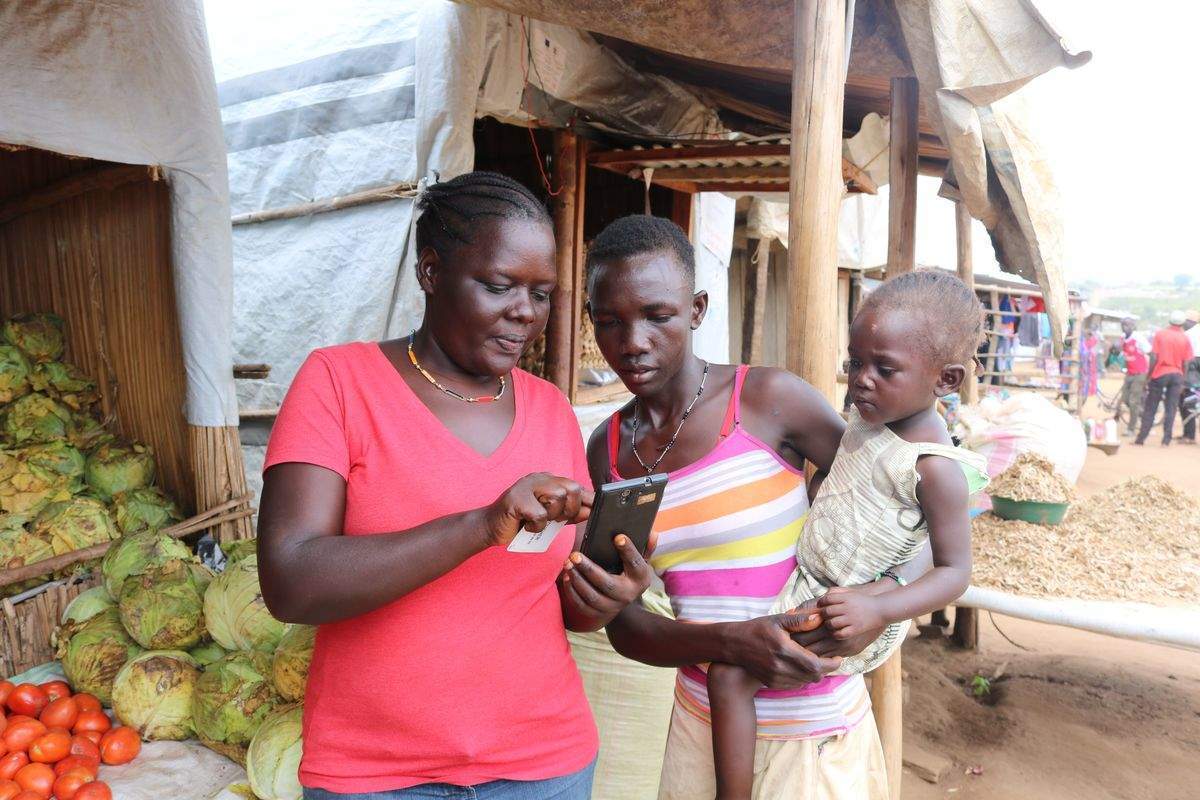
It’s World Refugee Day on 20 June, a day that ‘commemorates the strength, courage, and perseverance of millions of refugees’.
When a substantial number of people arrived in the European Union following the Syrian civil war, it triggered a refugee and migrant crisis on a scale not seen since the Second World War. The UN Refugee Agency’s (UNHCR) annual Global Trends study found that 65.6 million people were forcibly displaced worldwide at the end of 2016.
Although the refugee crisis is far from being solved, various companies from the technology sector have developed initiatives aimed at helping and empowering those who have been displaced.
Apps have been developed to help refugees in their everyday lives
Since the plight of those affected by the Syrian refugee crisis hit the headlines, a number of tech companies, startups and initiatives have used technology to positively impact the lives of those forcibly displaced. Referred to by some as ‘digital humanitarianism’, apps, websites and smart devices have emerged from the crisis, offering both short-term tools that make it easier for individuals to communicate and access aid, to long-term solutions that enable individuals to build a life in a new country.
According to The Guardian, 86% of young people living in the second largest refugee camp in the world, in Za’atari, Jordan owned a mobile phone in 2015, meaning engaging with technology is an obvious tool to optimise the humanitarian efforts of charities and NGOs.
A 2017 report by PWC on managing the refugee and migrant crisis said that such efforts could help reach and communicate with refugees more effectively:
How well do you really know your competitors?
Access the most comprehensive Company Profiles on the market, powered by GlobalData. Save hours of research. Gain competitive edge.

Thank you!
Your download email will arrive shortly
Not ready to buy yet? Download a free sample
We are confident about the unique quality of our Company Profiles. However, we want you to make the most beneficial decision for your business, so we offer a free sample that you can download by submitting the below form
By GlobalData“Vigorous efforts are underway in the technology community to help refugees and other stakeholders in the field. To reach refugees and individuals more effectively, mobile phone-based apps are the preferred solutions and several are being developed to address issues such as housing, communication and internet connectivity, safety and surveillance, healthcare, information provision, crowdsourcing, jobs matching and overall integration.”
Several developers have come up with ways to address the social issues that affect those arriving in a foreign country such as housing, employment and language barriers. Developed by tech company Singa, CALM is an app that connects refugees seeking temporary accommodation with individuals who have spare rooms. Refugeehero.com offers a similar service in the Netherlands.
In 2016, Canadian nonprofit PeaceGeeks launched an app called Services Advisor in partnership with the UNHCR, designed to “address a common coordination problem in refugee areas”. The app enables refugees to search for the specific service they need, such as shelter and medicine, and gives them up-to-date information on the location of specific humanitarian service providers.
Focusing more on the long-term, apps such as Zarity connect immigrants and refugees to job opportunities, with the aim of “serving millions of work seekers and tens of thousands of employers in our selected markets” by 2020.
In the fintech sector, apps such as Moni have been developed to help refugees and migrants set up bank accounts, a barrier that often prevents individuals and families from accessing financial aid.
Using technology to develop transferrable skills
As well as technology to be used by refugees, efforts are underway to empower refugees to engage in developing initiatives themselves.
Aimed at helping refugees access educational and professional opportunities, several organisations are working with refugees to equip them with tech-related skills or giving them the tools to utilise existing skills. Regardless of the technology involved, the core ethos of such initiatives is to work with refugees, not for them.
Organisations such as Techfugees, a non-profit coordinating the international tech community’s response to the needs of refugees, asylum seekers and displaced people, hosts regular hackathons which encourage participants to find tech solutions to the challenges faced both by refugees living in and outside of camps.
Similarly, non-profit ‘Code your future’ teaches refugees the skills needed to become web developers.
Some have criticised technology aimed at refugees
However, the efforts of those in the tech community have not always been applauded, with an article by the UNHCR pointing out that many apps developed to benefit refugees do not take into account how they use technology in their everyday lives, are rarely updated or only have a handful of users.
Humanitarian expert Kilian Kleinschmidt has criticised technology that singles out refugees:
“Don’t design yet another shelter for refugees. They’re not a species. So, there is no need for tech for refugees. Or design for refugees, or architecture for refugees.”
Founder of non-profit organisation Techfugees Mike Butcher believes that such technology should always serve a practical purpose rather than being developed for the sake of it:
“Our community works hard in concert with people on the ground to identify the best solutions. We have always advocated due diligence in testing before any deployment can take place. We must create real tech for real refugees. Not fake tech to jump on some stupid bandwagon. The lives of refugees are far too important to be trifled with.”
However, when used correctly, technology does a small part in helping alleviate everyday barriers faced by refugees, but also provides transferrable skills that go some way to empower those who have been displaced.
Speaking at the Techfugees Global Summit in 2017, Techrefugees CEO Josephine Goube believes it is vital to keep refugees at the centre of such initiatives:
“A lot of people talk about refugees but don’t include them. We’re a community of entrepreneurs, and refugees need to be involved.”






